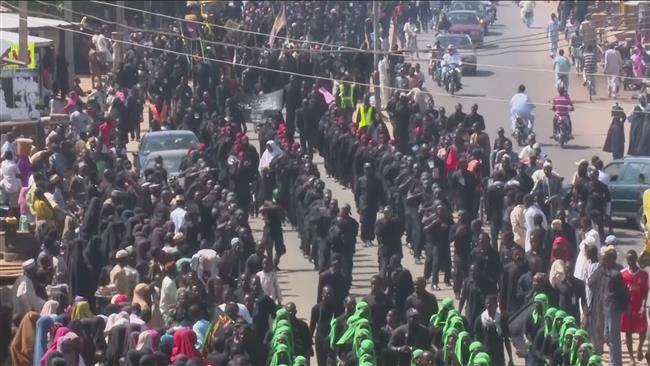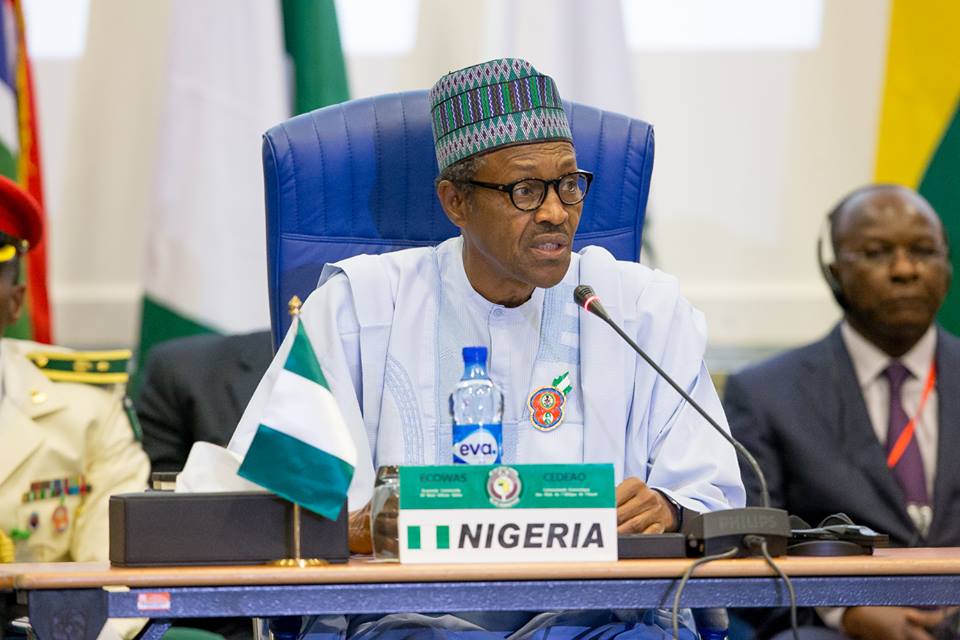BY AKIN OYAWALE
I had taken a four-day hiatus from social media, and the internet more generally, due to some pressing tasks I had to accomplish. On my unceremonious return, I was greeted with a barrage of grisly images of civilians that had been allegedly brutally murdered in Zaria by the Nigerian Army.
What made the situation more heart-wrenching was the fact that the corpses were being stripped and their valuables pilfered by some youths who must have had their ‘emotional numbing’ apparatus in overdrive. It was brutal and heartless. I was still digesting this sad reality when my Facebook and Twitter timelines became inundated with several opinions of people who had diverse perspectives about what had happened and about what they thought the ideal response could or should have been. In a country that has over 10,000,000 Shi’ites among its blossoming population and also a country that is a proud signatory to the Universal Declaration of Human Rights (UDHR), certain questions require immediate answers.
Adopting a Devil’s Advocacy stance may provide a more unconventional but efficient method of disentangling this Gordian knot. Perhaps the military was bent on providing security to the Nigerian populace at the expense of the cudgel and sword-toting processionists? Perhaps they were planning a terrorist attack as purported by a senior military officer and the massacre had just been exceptionally timely? Perhaps, the Islamic Movement (IM) members were planning to replicate an Iranian Revolution in Nigeria by first marching on the state house and eventually on Abuja? Perhaps, they are not even Muslim but devils as claimed by several seemingly anti-Shia ‘opinionists’? Perhaps, barricading public roads constitutes a crime that justifies summary execution of the perpetrators? In this sense, the Nigerian officers involved in this act are heroes and should be decorated for their service to humanity. Bravo!!! No matter what sense this line of reasoning might have made prima facie, it is indeed preposterous on closer scrutiny.
The first argument maintains an essentially consequentialist stance which has been heavily criticized and condemned globally. The advocates of this position, such as Dershowitz, advance a ‘Ticking Bomb’ hypothetical scenario that creates a zero sum between the security/wellbeing of one or a few suspects and that of potential innocent victims who are often several hundreds or thousands of citizens. In other words, the processionists could be killed as long as they constituted a potential danger to the citizens of Zaria, more specifically, and Nigerians, more broadly. Similarly, it was permissible to kill almost 1000 defenseless civilians (means) in the name of deterring future protesters (end), which would tilt towards an act state terrorism. President Muhammadu Buhari subsequently implored Nigerians to be ‘law-abiding’. Does this suggest that we can still have a Dele Giwa, an Alfred Rewane, a Kudirat Abiola, an Odi, and a Zaki-Biam, if we are not ‘law-abiding’ enough or puppets of the state? Kantian ethics state that ‘people should be treated as ends and never purely as means to the ends of others’ (Kant and Guyer, 1998).
Advertisement
Furthermore, this fundamentally realist position has been rubbished by deontologists who argue that all actions must adhere to certain norms- human rights law in this context. Beyond morality, a similar tactic was a ‘blessing in disguise’ to Boko Haram and its precursor, the Nigerian Taliban. They survived the Kanama village annihilation attempt and also the Mandara Mountain onslaught when the military engaged them in a crushing artillery battle. The final straw as hindsight would reveal was the annihilation attempt in 2009 that culminated in the death of at least 1000 people including Mohammed Yusuf, the group’s leader. This action only further radicalized the group and spurred them to heights that they could only have fantasized about, which reiterates the logic that terrorists thrive on overreaction and ‘draconianism’ in what is popularly known as a ‘blowback’ in security studies parlance.
If this was a war, it would still be a violation of jus in bello principles. Jus in bello is one of the three main principles that guide the conduct of ‘Just War’, the other two being jus ad bellum, and jus post bellum. Jus in bello principles, are concerned with whether a war is conducted justly irrespective of whether the initiation of hostilities was just or not (Bellamy, 2005). In this context, the processionists being armed will be irrelevant but the question will be proportionality and commensurability. Did a cudgel and sword demand an onslaught that resulted in almost 1000 deaths? Many of these victims did not actually engage in the procession but were attacked at IM’s headquarters after the initial crackdown.
It could be assumed that the procession constituted an act of war. Nevertheless, the response by the military would still contravene Rule 47 of the International Law of Armed Conflicts which states that ‘attacking persons who are recognized as hors de combat is prohibited’ (ICRC, 2015). A person hors de combat is anyone who is defenseless due to reasons such as sickness, unconsciousness, injury, or who is in the power of an adverse party as a result of an expression of an intent to surrender. What efforts did the military make before and after the first bullet to make them surrender? This action constitutes a crime against humanity. This can be defined as acts, before or during the war, that target a specific group of people (IM), be it for their race, religion (Shia Islam) or political orientation that is condoned or even promoted by the government (Robinson, 1999). To make this particular argument even possible, we have erroneously assumed that the military could actually declare war which is not the case in a democratic state, outside a state of emergency.
Advertisement
Second, terrorism is essentially clandestine in nature, therefore, attacks are not planned in the open with cudgels and swords. If at all they were orchestrating a future attack, it was outside the remit of the military but rather the constitutional duty of the intelligence agencies and police to follow the right protocol in investigating, arresting and prosecuting the possible culprits. Also, of all the prominent terrorist groups in the world at the moment namely, Al Qaeda, Al Nusra, Al Shabaab, Boko Haram, Hezbollah, Lashkar-e-Jhangvi, Lashkar-e-Taiba, ISIS, Taleban, etc., only Hezbollah can be regarded as purely Shia which ultimately underscores the absurdity of the anti-terrorism rhetoric which has since 9/11 and the consequent Global War on Terror become a surefire tool for depriving marginalized citizens of their legitimacy and on many occasions their lives and very existence. They can also not be planning a terrorist attack and replicate an Iranian Revolution at the same time. These are very distinct methods of imposing political Islam (or Islamism) on a society. It is pertinent to note that the irreconcilable sectorial/denominational division between Shi’a and Sunni is extremely complex, thus totally outside the scope of this article and perhaps irrelevant in this context.
Third, insinuating an Iranian Revolution in Nigeria is the height of disingenuousness. Several factors made the overthrow of the Pahlavi dynasty possible at that time, none of which is currently present in Nigeria. Iran was Shia-dominated and they had suffered at least two foreign invasions by the UK and at the time, USSR in the two decades that preceded the revolution. A democratically elected prime minister, Mohammad Mossadegh, had also been forcefully removed from office in a coup d’état. All these factors conspired to create a power vacuum that the revolutionaries capitalized on. Nigeria is almost equally divided between Muslims and Christians which must put any possibilities of a forceful domination by one religion to rest. Even if it was a revolution at its embryonic stage, was this the best response? I leave that to your imagination. Fourth, if they had committed a crime by barricading the road then certain responses may have been permissible. They could have been officially cautioned by the police, convinced to disperse and perhaps forcefully dispersed with commensurate and proportional force. This could have required the use of water cannons, shield and batons, tear gas, and perhaps, rubber-coated projectiles in extreme cases. This was not the case which reveals an unlawful and extremely disproportionate response by the country’s apex security force to a minor provocation. Furthermore, Kaduna is not under martial law which makes the military onslaught blatantly unconstitutional.
According to a very apt Yoruba aphorism, ‘ipasan ti won fi na iyale n be loke aja fun iyawo’ which literally translates as ‘the ill-treatment of the older (not always age-wise) and now undesirable wife should act as a harbinger to the newly married wife on what to expect when she becomes undesirable’. Figuratively, this means we could learn from the current ordeals of people who share similar characteristics to us as karma has a vindictive way of spinning life’s wheels. In this sense, if the right to freedom of peaceful assembly and expression can be successfully extirpated under the guise of ‘anti-terrorism’ or self-defense then an unfortunate antecedent would have been born. Is this not a Pandora’s Box or the slippery slope that we have always dreaded? What initially baffled me was the threshold of tolerance for heinous crimes that common Nigerians have retained from almost half a century of military rule under different guises. One commenter on Facebook claimed that ‘it is what you get when you defy/confront the Chief of Army Staff’. I was dumbfounded. While I acknowledge that Nigeria is yet to be in a liberal democracy, I also believe it is an ideal that we must aspire to.
President Muhammadu Buhari is not a stranger to accusations of human rights violations, especially when he overthrew a democratically elected government in 1983, promulgated decree 4 (anti-freedom of speech), and other strict measures. He is indeed a self-proclaimed ‘changed man’ and we believe his solemn renouncement of his past mistakes. The least that Mr. President can do is to sanction an immediate investigation that is unbiased, thorough and transparent. While no amount of efforts will ever bring these people back to their families and friends, the perpetrators can be brought to justice and our democracy can be reborn in what will be a landmark achievement for accountability, justice and fairness. The army should be a noble profession and will be much better without these inglorious cannibals that I believe are in the minority. This is nothing but persecution and we must all understand that we are humans first before we are religious. Malcolm X wisely encapsulates this line of reasoning in a letter to his friends from Mecca, ‘I am for justice, no matter who it is for or against. I am a human being first and foremost, and as such I’m for whoever and whatever benefits humanity as a whole’ (Malcolm, 1965: Emphasis in original) original). If you cannot be your brother or sister’s keeper, resist the temptation to be their killer.
Advertisement
A temptation to cite the greatest sage and iconoclast that Africa has ever seen, Fela Anikulapo Kuti has been resisted until now. ‘Seven minutes later, All done[have] cool[ed] down brother, [the]Police don[have] go[ne] away, [the]Army don[have] disappear[ed], Dem[they] leave Sorrow, Tears, and Blood (2x), Dem[their] regular trade mark’ (Kuti, 1977). Only that on this occasion, it lasted for far more than seven minutes. However, despite the aforementioned temporal discrepancies, it inevitably elicited a similar outcome, a ‘vampire apocalypse’ in Zaria has left sorrow, tears and blood in what has invariably emerged as a regular trademark of the Nigerian Forces.
Bibliography
Advertisement
Bellamy AJ. (2005) Is the war on terror just? International Relations 19: 275-296.
ICRC. (2015) Rule 47. Attacks against Persons Hors de Combat. International Committee of the Red Cross.
Advertisement
Kant I and Guyer P. (1998) Critique of pure reason: Cambridge University Press.
Kuti F. (1977) Sorrow, Tears and Blood. In: Kuti F (ed) Sorrow, Tears and Blood. Lagos: Kalakuta Republic, KK001.
Advertisement
Malcolm X. (1965) with Alex Haley. The Autobiography of Malcolm X 174.
Robinson D. (1999) Defining” crimes against humanity” at the Rome Conference. American Journal of International Law: 43-57.
Advertisement
Oyawale studies Politics and International Relations at the University of East Anglia
Views expressed by contributors are strictly personal and not of TheCable.






